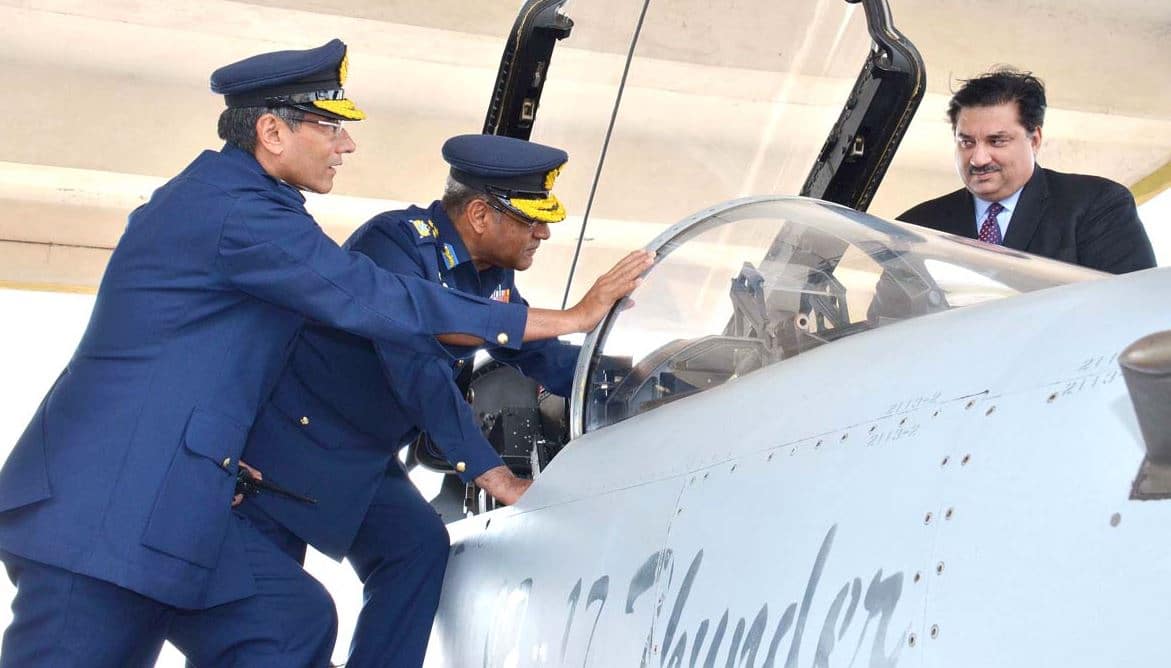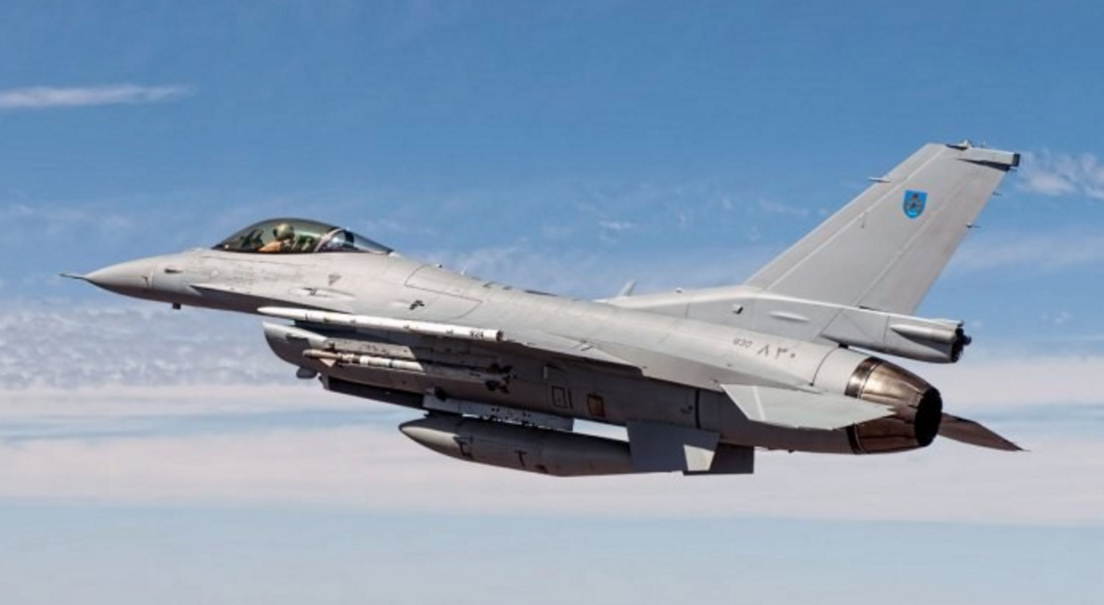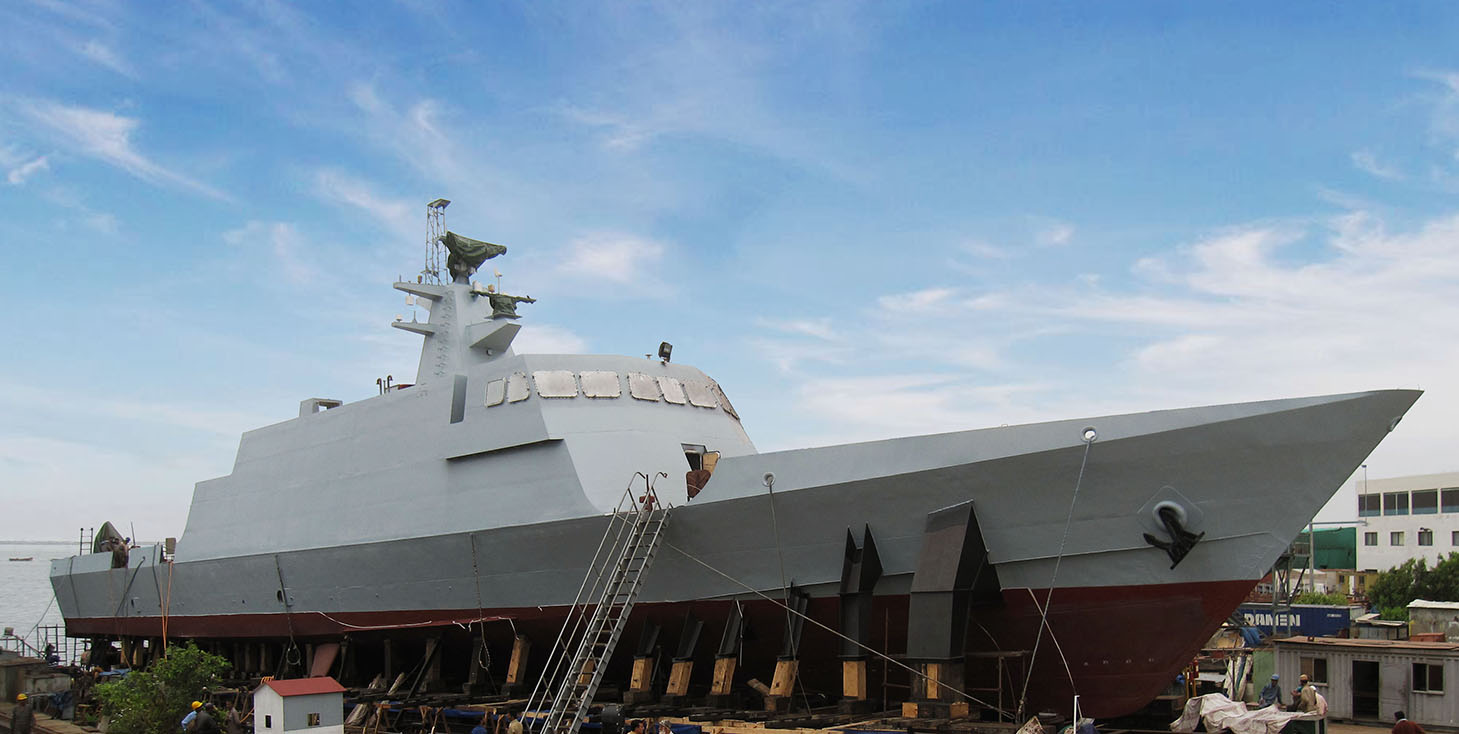2142Views 0Comments

Outgoing Pakistan Air Force Chief: JF-17 Block-III design finalized
In his final speech to Air Headquarters, the outgoing Chief of Air Staff (CAS) of the Pakistan Air Force (PAF), Air Chief Marshal (ACM) Sohail Aman announced that the design of the JF-17 Block-III was finalized after a period of “two-and-a-half years”.
The JF-17 Block-III is the first major development of the JF-17 Thunder, which is co-produced by Pakistan Aeronautical Complex (PAC) and the Aviation Industry Group of China (AVIC). In February 2018, the PAF announced that it raised its sixth JF-17 unit – i.e. the No. 28 “Phoenix” Squadron – in Baluchistan.
PAC rolled-out a total of 100 JF-17 Block-I and Block-IIs for the PAF. Of the Block-IIs, approximately half of them are also equipped with in-flight refueling (IFR) probes for air-to-air refueling (AAR). These IFR JF-17s appear to have been allocated to newer (i.e. No. 28 and No. 14) and older (No. 16) units.
The announcement follows reports in January from Chinese sources claiming that the Chengdu Aircraft Industry Group (CAIG) has pushed the JF-17 Block-III program to the “preliminary design stage”.
Although the former PAF CAS did not outline the Block-III’s slated subsystems, earlier PAF statements and reports outlined that the Block-III will include an active electronically-scanned array radar, a new onboard avionics suite, updated electronic warfare and electronic countermeasures system and, at least in 2015, a helmet-mounted display and sight with high off-boresight air-to-air missile.
ACM Aman asserted that the JF-17 Block-III will fulfill the PAF’s requirements for an affordable high-tech aircraft, filling a gap (which he acknowledged) in the area. ACM Aman also urged forthcoming – and other future – PAF leaders to maintain a fighter force level of 400 through the foreseeable future.
Currently, the PAF plans to procure 50 JF-17 Block-IIIs, with production commencing in 2019 or 2020.
Besides another 12 JF-17 Block-II (to keep PAC’s production lines warm through 2018), it is unclear if the PAF will procure additional JF-17s, though it would be a rational outcome in the long-term given the increasing age of the mainstay PAF fleet and, in parallel, the dearth of high-tech fighter options.
Separately, the PAF has also taken delivery of its first twin-seater JF-17B. PAC will receive two of the three JF-17Bs for testing and, presumably, promotional purposes with prospective buyers. The PAF has not yet committed itself to procuring JF-17Bs.
ACM Sohail Aman was formally succeeded by ACM Mujahid Anwar on 19 March 2018. Reflecting on his three-year tenure as the PAF CAS, ACM Aman noted serving “was a matter of pride”. In a separate speech, ACM Aman outlined that the induction of four JF-17 squadrons was a pivotal piece of “Force Goal 2030”.
Under Force Goal 2030, the PAF achieved completing PAF Bholari, a new major operating base in Sindh, for strengthening the country’s maritime airpower. During ACM Aman’s tenure, the PAF also established the Airpower Centre of Excellence (ACE) and the Air University Campus on Kamra, with the latter to serve a leading role in bringing Project Azm, the PAF’s next-generation fighter program, to fruition.


